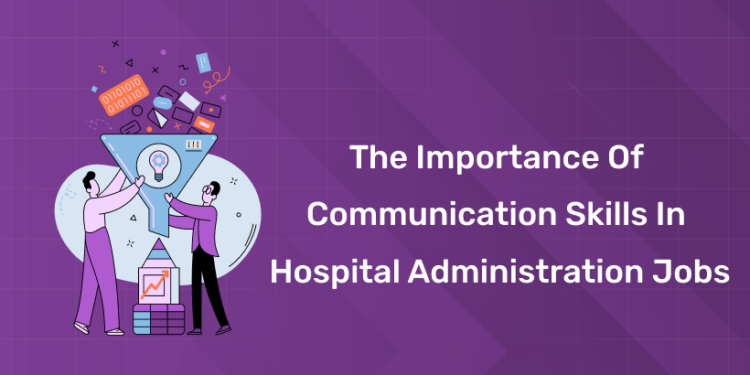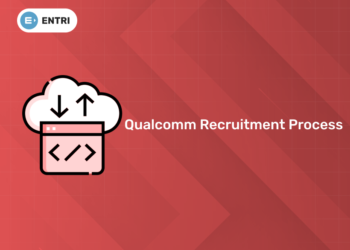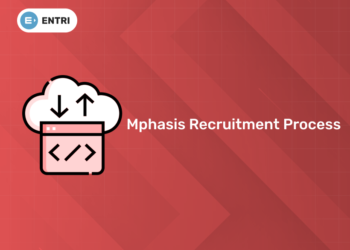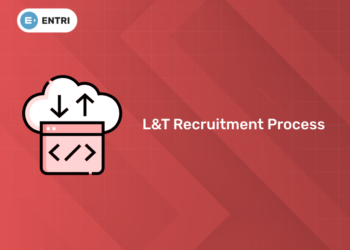Table of Contents
In the fast-paced and complex world of healthcare, effective communication is the backbone of successful hospital management. For hospital administrators, clear and concise communication isn’t just a valuable skill—it’s a necessity. From coordinating medical teams and managing patient relations to ensuring regulatory compliance, administrators must communicate effectively across multiple channels. In this context, The Importance of Communication Skills in Hospital Administration Jobs cannot be overstated. Strong communication fosters trust, streamlines operations, and improves patient outcomes, making it a critical competency for leaders in healthcare management.
Explore Your Future in Hospital Administration! Enroll now
The Importance of Communication Skills in Hospital Administration Jobs: Introduction
In the ever-evolving healthcare industry, effective communication is a critical factor in ensuring the smooth functioning of hospital operations. Hospital administrators play a pivotal role in managing day-to-day activities, coordinating between different departments, and ensuring that both patients and staff receive the necessary information to perform their roles efficiently.
From addressing patient concerns to collaborating with healthcare professionals and regulatory bodies, communication lies at the heart of hospital administration. Administrators must master various forms of communication to foster trust, maintain operational efficiency, and uphold the hospital’s reputation. This blog will explore why communication skills are essential in hospital administration, the key communication skills every administrator must possess, and how these skills impact the overall success of healthcare organizations.
Importance of Communication Skills in Hospital Administration:
1: What is the primary role of a hospital administrator?
Why Communication Skills Are Essential in Hospital Administration
Hospital administration jobs require balancing a wide range of tasks, from managing personnel to ensuring regulatory compliance. At the core of each of these responsibilities lies effective communication. Here’s why communication is crucial in this field:
1. Ensures Clear Coordination Between Departments
Hospitals are complex organizations with multiple departments such as emergency services, outpatient care, surgery, and administration. Effective communication ensures that each department is aligned in their goals and processes, reducing misunderstandings that could impact patient care. Administrators act as a bridge between different departments, ensuring seamless coordination.
Example:
An administrator coordinating between the emergency department and laboratory services ensures that test results are communicated promptly, enabling doctors to make timely decisions for patients in critical condition.
2. Enhances Patient Satisfaction
Patients and their families often interact with hospital administrators when they have concerns or complaints. Administrators with excellent communication skills can handle these interactions with empathy and professionalism, making patients feel heard and valued. This ultimately leads to higher patient satisfaction scores, which are key performance indicators for hospitals.
Example:
An administrator who actively listens to a patient’s concerns and provides clear explanations of procedures and billing policies builds trust and reduces anxiety for the patient.
3. Improves Staff Morale and Retention
Hospital administrators oversee large teams of medical and non-medical staff. Effective communication helps in addressing staff concerns, providing constructive feedback, and ensuring that everyone is aware of hospital policies and updates. Open communication channels foster a positive work environment, which improves staff morale and retention.
Example:
A hospital administrator who regularly holds meetings to update staff on organizational changes and listens to their input demonstrates transparency and boosts team morale.
4. Supports Crisis Management
Hospitals often face unexpected crises, such as disease outbreaks, natural disasters, or security threats. Effective communication during such times is vital to ensure that staff and patients remain informed, calm, and safe. Administrators must communicate clear action plans to handle crises efficiently.
Example:
During a pandemic, hospital administrators must communicate updated safety protocols, staff schedules, and patient management guidelines to prevent confusion and ensure the hospital continues to operate smoothly.
5. Ensures Regulatory Compliance
Hospital administrators must ensure that their institutions comply with various healthcare regulations and standards. This requires constant communication with regulatory bodies, legal teams, and hospital staff to keep everyone informed about compliance requirements.
Example:
An administrator who communicates policy changes related to patient data privacy ensures that all staff members follow the required guidelines to avoid legal penalties.
Explore Your Future in Hospital Administration! Enroll now
Hospital Administration Course with Assured Career Growth
Hospital Administration Course by Entri App: Master essential healthcare management skills, gain certification, and secure top roles in leading hospitals
Join Now!Importance of Communication Skills in Hospital Administration:
Key Communication Skills Every Hospital Administrator Must Have
To thrive in a hospital administration role, professionals must possess a variety of communication skills. Below are the essential communication skills for hospital administrators:
1. Active Listening
Active listening is one of the most critical communication skills. It involves fully concentrating on the speaker, understanding their message, and responding thoughtfully. In a hospital setting, administrators must listen to patients, staff, and stakeholders to understand their concerns and needs.
Tips for Active Listening:
- Maintain eye contact with the speaker.
- Avoid interrupting and let the person finish their thoughts.
- Ask clarifying questions to ensure understanding.
Example:
When a nurse reports a supply shortage, an active-listening administrator will not only acknowledge the issue but also take immediate steps to address it.
2. Verbal Communication
Hospital administrators must be articulate and able to convey information clearly. Whether they are giving instructions to staff, addressing patient concerns, or presenting reports to stakeholders, verbal communication skills are essential.
Tips for Effective Verbal Communication:
- Use clear and concise language.
- Tailor your message to your audience.
- Avoid medical jargon when communicating with non-medical personnel or patients.
Example:
An administrator explaining a new billing system to patients must use simple language to ensure clarity and avoid confusion.
3. Written Communication
Written communication is crucial for hospital administrators, as they often need to draft policies, reports, emails, and memos. Poorly written communication can lead to misunderstandings and errors.
Tips for Effective Written Communication:
- Use a professional and courteous tone.
- Proofread documents to avoid errors.
- Be concise and direct, avoiding unnecessary details.
Example:
An administrator who sends a well-structured email to staff about new hospital protocols ensures that everyone understands the changes without confusion.
4. Empathy and Emotional Intelligence
Empathy and emotional intelligence allow hospital administrators to understand and manage emotions, both their own and those of others. This skill is vital when dealing with patients, families, and staff in emotionally charged situations.
Tips for Developing Empathy:
- Practice active listening.
- Validate others’ feelings and experiences.
- Respond with kindness and understanding.
Example:
When handling a patient complaint about long wait times, an empathetic administrator acknowledges the frustration and takes steps to improve the process.
5. Conflict Resolution Skills
Conflict is inevitable in hospital settings, whether between staff members or with patients. Hospital administrators must have strong conflict resolution skills to handle disputes professionally and maintain a harmonious environment.
Tips for Conflict Resolution:
- Stay calm and composed during conflicts.
- Listen to all sides before making a decision.
- Focus on finding a win-win solution.
Example:
An administrator mediating a conflict between two doctors ensures that both parties feel heard and that a fair resolution is reached.
6. Nonverbal Communication
Nonverbal communication, such as body language, facial expressions, and tone of voice, plays a significant role in how messages are received. Hospital administrators must be mindful of their nonverbal cues to ensure they are communicating effectively.
Tips for Nonverbal Communication:
- Maintain open and positive body language.
- Avoid crossing your arms or appearing disinterested.
- Use facial expressions to convey empathy and understanding.
Example:
An administrator delivering difficult news to a family should maintain a compassionate facial expression and open body language to convey empathy.
7. Public Speaking and Presentation Skills
Hospital administrators often need to present reports, policies, and strategies to stakeholders, staff, and even the public. Public speaking and presentation skills are essential for delivering impactful messages.
Tips for Public Speaking:
- Practice your speech beforehand.
- Use visual aids to enhance understanding.
- Engage your audience with questions and interactive elements.
Example:
An administrator presenting a hospital’s annual performance report to the board of directors must ensure their presentation is clear, concise, and engaging.
Explore Your Future in Hospital Administration! Enroll now
The Importance of Communication Skills in Hospital Administration Jobs: Conclusion
The Importance of Communication Skills in Hospital Administration Jobs was discussed in this blog. Communication skills are the cornerstone of effective hospital administration. They impact every aspect of an administrator’s role, from patient satisfaction and staff morale to crisis management and regulatory compliance. By mastering key communication skills such as active listening, empathy, verbal and written communication, and conflict resolution, hospital administrators can ensure the smooth operation of their institutions and improve overall healthcare outcomes.
In a fast-paced and high-pressure environment like a hospital, clear and effective communication can mean the difference between success and failure. Therefore, aspiring hospital administrators must continuously work on improving their communication skills to excel in their roles and contribute positively to the healthcare system.
Hospital Administration Course with Assured Career Growth
Hospital Administration Course by Entri App: Master essential healthcare management skills, gain certification, and secure top roles in leading hospitals
Join Now!Frequently Asked Questions
Why are communication skills important in hospital administration?
Communication skills are essential in hospital administration to ensure clear coordination between departments, improve patient satisfaction, manage staff effectively, and handle crises efficiently.
What are the key communication skills required for hospital administrators?
Key communication skills include active listening, verbal and written communication, empathy, conflict resolution, nonverbal communication, and public speaking.
How can hospital administrators improve their communication skills?
Hospital administrators can improve their communication skills by attending workshops, practicing active listening, seeking feedback from colleagues, and staying updated on best practices in healthcare communication.
How does communication impact patient care in hospitals?
Effective communication ensures that patients receive clear information about their care, which improves patient satisfaction, trust, and health outcomes.
What role does empathy play in hospital administration?
Empathy allows hospital administrators to connect with patients, families, and staff on an emotional level, helping them manage difficult situations with compassion and understanding.
How do communication skills help in managing hospital staff effectively?
Communication skills help hospital administrators provide clear instructions, resolve conflicts, give constructive feedback, and ensure staff members feel heard and valued. This improves team morale, productivity, and retention rates.
What are some common communication challenges faced by hospital administrators?
Common challenges include language barriers, managing difficult conversations, handling conflicts, ensuring compliance with medical terminologies, and communicating effectively during high-pressure situations like emergencies.
Why is written communication important for hospital administrators?
Written communication is crucial for hospital administrators as they regularly prepare reports, policies, emails, and memos. Clear and professional written communication ensures that important information is accurately conveyed and understood.
How can hospital administrators handle patient complaints more effectively?
Hospital administrators can handle patient complaints effectively by actively listening to the patient, empathizing with their concerns, providing clear explanations, and taking prompt action to resolve issues. Keeping communication transparent and respectful is key to diffusing tense situations.
How do nonverbal communication skills impact hospital administration?
Nonverbal communication, such as body language, facial expressions, and tone of voice, plays a vital role in conveying empathy and professionalism. Positive nonverbal cues help build trust and improve interactions with both staff and patients.











